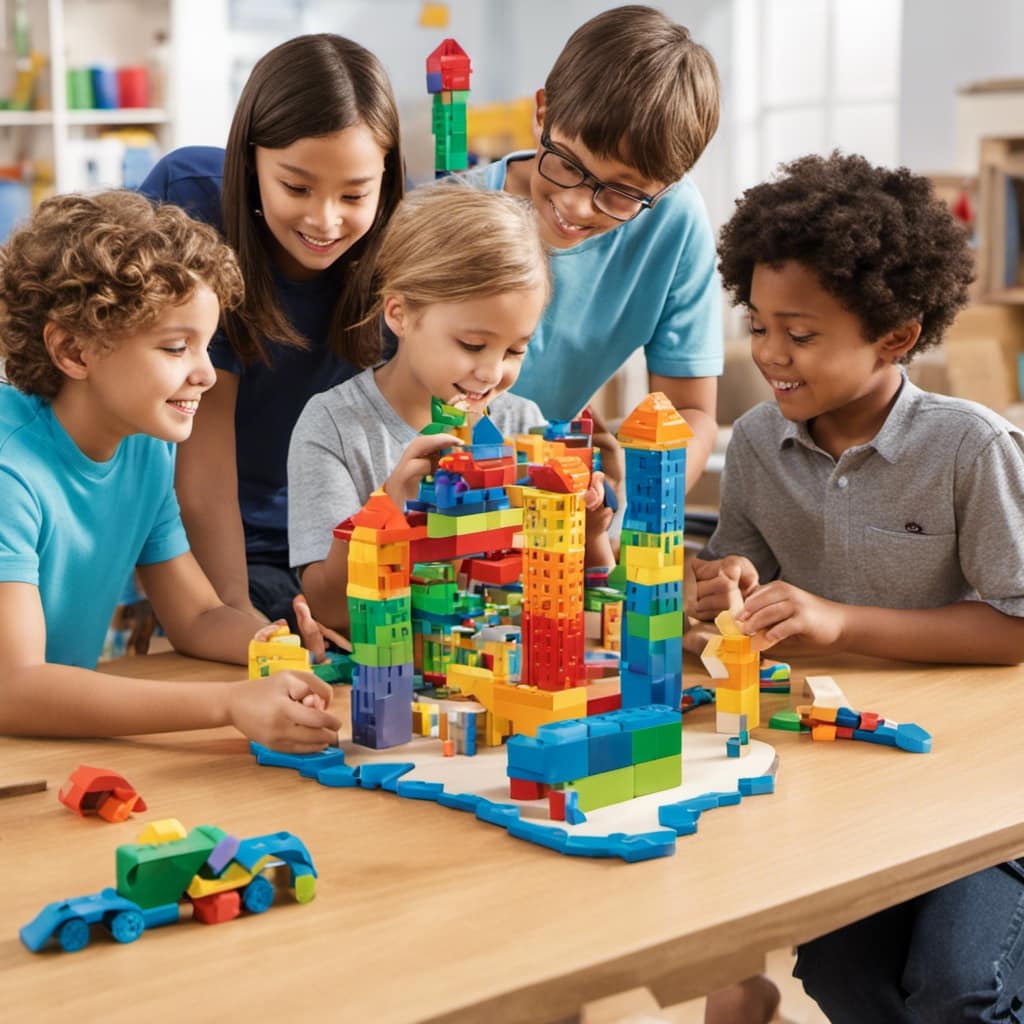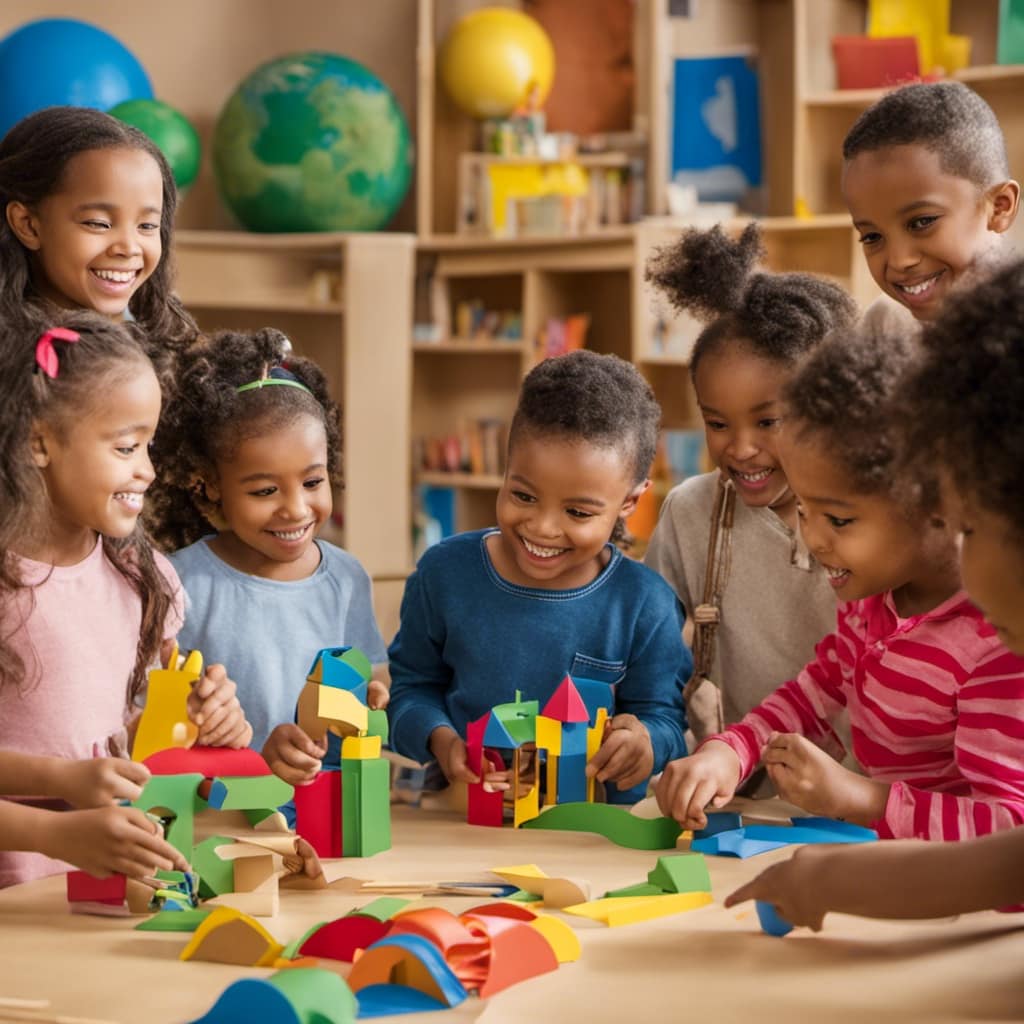As an expert in language development, I strongly believe that pragmatics is essential in enabling effective communication in children.
Imagine language as a powerful tool, capable of connecting children with the world around them. Pragmatics, the study of how children use language in social situations, allows them to adapt and interact effectively.
It shapes their ability to navigate different contexts, understand nonverbal cues, and engage in meaningful conversations.
In this article, we will explore the importance of pragmatics in child development and uncover strategies to support their language skills.
Key Takeaways
- Pragmatics is the study of how children develop the ability to use language in social situations.
- Pragmatics helps children learn how to adapt their language to different situations and interact with others effectively.
- Understanding and using pragmatics foster positive relationships with peers and adults.
- Key concepts in pragmatics include using language for different purposes, understanding nonverbal cues, turn-taking, and politeness.
The Importance of Pragmatics in Child Development
I understand the importance of pragmatics in my child’s development as it helps them effectively communicate and interact with others. Pragmatic language skills have a significant impact on social development.
When children possess strong pragmatic skills, they are better able to navigate social situations, understand social cues, and build positive relationships with their peers and adults.

As a parent, my involvement plays a crucial role in fostering my child’s pragmatic language development. By providing opportunities for communication, modeling appropriate language use, and offering guidance, I can support my child in developing effective communication skills.
Parental involvement also helps children understand the social norms and rules of conversation, which are essential components of pragmatic language skills.
Building Effective Communication Skills Through Pragmatics
Understanding and using pragmatic language skills helps me develop effective communication abilities. It’s important for me to develop social skills and adapt my language to different situations. By understanding the rules of conversation, like taking turns and staying on topic, I can communicate effectively with others.
I also need to adjust my language based on the needs of the listener and understand nonverbal cues. These skills, such as turn-taking, topic maintenance, and understanding nonverbal cues, are crucial for successful social communication.
As I grow and develop, I will continue to improve my pragmatic language skills, starting with preverbal communication and progressing to using words. By building these skills, I can confidently navigate social interactions and engage in effective communication with others.
Understanding the Role of Pragmatics in Language Acquisition
Developing a strong understanding of how pragmatics impacts language acquisition is crucial for effective communication. The role of pragmatics in language acquisition cannot be underestimated. Here are three strategies for fostering pragmatic language development:

-
Provide opportunities for meaningful interactions: Encourage children to engage in conversations and discussions that allow them to practice using language in different social situations. This can include role-playing, group activities, and real-life scenarios.
-
Model appropriate language use: Be a good language role model by using clear and concise language, taking turns during conversations, and using appropriate nonverbal cues. Children learn by observing and imitating, so it’s important to demonstrate effective communication skills.
-
Give feedback and reinforce positive communication behaviors: Provide constructive feedback when children use language inappropriately and praise them when they demonstrate good pragmatic skills. This helps them understand the importance of using language effectively and encourages further development.
Key Concepts in Pragmatics for Effective Child Communication
Applying strategies to support children’s pragmatic language skills is essential for fostering effective communication. Pragmatics and social skills play a crucial role in enabling children to interact successfully with others. Pragmatic language acquisition refers to the development of language skills that allow children to communicate in a socially appropriate and effective way. By understanding and using the rules of conversation, such as turn-taking and topic maintenance, children can engage in meaningful interactions. Additionally, being able to adjust their language based on the listener’s needs and understanding is crucial for effective communication. Developing pragmatic skills, including understanding nonverbal cues, can greatly enhance a child’s ability to engage in successful social communication. The table below highlights some key concepts in pragmatics for effective child communication.
| Pragmatic Language Skills | Pragmatic Milestones |
|---|---|
| Understanding turn-taking | Initiating and responding to greetings |
| Maintaining topics of conversation | Using appropriate eye contact |
| Adjusting language for listeners | Understanding and using gestures |
| Recognizing nonverbal cues | Engaging in pretend play |
Enhancing Social Interaction Through Pragmatic Language Skills
Enhancing social interaction through pragmatic language skills has been a transformative experience for me. It has allowed me to foster effective communication and develop essential social skills. Here are three ways in which enhancing social skills through pragmatic language skills can benefit individuals:
-
Improved understanding: Pragmatic language skills help individuals better understand social cues and nonverbal communication, leading to more effective interactions and stronger relationships.

-
Enhanced empathy: By developing pragmatic language skills, individuals gain a deeper understanding of others’ perspectives and emotions, fostering empathy and compassion in their interactions.
-
Increased confidence: Effective communication is key to building self-confidence. By honing pragmatic language skills, individuals can express themselves more clearly and assertively, leading to increased confidence in social situations.
Overall, enhancing social skills through pragmatic language skills plays a vital role in fostering effective communication, building relationships, and promoting personal growth.
Milestones in Pragmatics: Tracking Developmental Progress
Tracking developmental progress in milestones of pragmatics has been an enlightening experience for me.
Understanding the key developmental milestones in pragmatics is crucial for identifying children’s progress in language and social-emotional skills.
By monitoring these milestones, we can track the growth of children’s pragmatic language skills and identify any potential delays or areas that may require additional support.

Developmental milestones in pragmatics encompass various aspects, including language adaptation, turn-taking, and understanding nonverbal cues.
Recognizing these milestones helps us understand the significance of pragmatics in language development and social interaction.
It is important to provide a safe environment and engage children in age-appropriate activities to support their development.
Strategies for Supporting Pragmatic Language Development
To support the development of pragmatic language skills, I have found it helpful to create a safe and engaging environment for children where they can practice using language for different purposes and interacting with others effectively. Here are three strategies for fostering communication and promoting social interaction:
-
Encourage cooperative play: Engage children in activities that require cooperation and communication, such as building blocks or pretend play. This allows them to practice turn-taking, sharing ideas, and problem-solving together.
-
Model and teach social language: Be a role model for appropriate social interactions by using clear and concise language, maintaining eye contact, and using polite words. Teach children how to initiate conversations, ask questions, and listen actively to others.

-
Provide opportunities for real-life interactions: Create situations where children can practice using language skills in authentic contexts, such as ordering food at a pretend restaurant or engaging in a phone conversation. This helps them develop confidence and competence in using language effectively in everyday situations.
Promoting Effective Communication Through Pragmatic Techniques
In my experience, promoting social interaction and facilitating effective conversations are key aspects of fostering pragmatic language skills in children. By creating opportunities for children to engage in meaningful conversations, we can help them develop the ability to adapt their language to different situations and interact with others effectively.
Encouraging turn-taking, active listening, and understanding nonverbal cues are essential techniques for promoting effective communication. Additionally, providing a safe and supportive environment where children feel comfortable expressing themselves can greatly enhance their pragmatic skills.
Pragmatics: A Foundation for Positive Relationships in Childhood
From my experience, fostering strong relationships in childhood relies heavily on the foundation of effective communication through pragmatic techniques. Developing communication abilities is crucial for children to navigate social interactions and build positive connections with others.
Here are three key ways in which pragmatics and social skills contribute to the development of effective communication:
-
Understanding Nonverbal Cues: Pragmatics helps children interpret and respond to nonverbal cues such as body language and facial expressions, enhancing their ability to understand others and express themselves appropriately.

-
Turn-Taking and Conversation Skills: Pragmatics teaches children the importance of taking turns in conversation, listening actively, and staying on topic. These skills promote effective communication and enable children to engage in meaningful dialogues with their peers.
-
Problem-Solving and Conflict Resolution: Pragmatics equips children with the skills to resolve conflicts and solve problems through effective communication. It teaches them how to express their needs and emotions assertively, leading to healthier relationships and smoother interactions.
Unlocking the Power of Pragmatics for Successful Child Communication
In my previous subtopic, I discussed how pragmatics serves as a foundation for positive relationships in childhood.
Now, let’s explore the power of pragmatics in social development and how it can be harnessed for effective communication.
Pragmatics plays a crucial role in helping children develop successful communication skills. By understanding and using pragmatics, children can adapt their language to different situations and interact effectively with others. This ability to navigate social interactions is essential for building positive relationships with peers and adults.
To harness the power of pragmatics for effective communication, children need to develop key skills such as using language for different purposes, understanding nonverbal cues, turn-taking, and politeness. These skills enable children to navigate conversations, understand social expectations, and express themselves appropriately.

Frequently Asked Questions
What Are Some Strategies for Supporting Pragmatic Language Development in Children?
Some strategies for supporting pragmatic language development in children include modeling appropriate language use, providing opportunities for social interactions, reinforcing positive communication behaviors, and using visual supports to enhance understanding.
How Do Pragmatic Language Skills Contribute to Successful Social Communication?
Pragmatic language skills contribute to successful social communication by helping children understand and use language effectively in different situations. They involve turn-taking, adjusting language, and understanding nonverbal cues, fostering positive relationships and effective interactions.
Can You Provide Examples of Milestones in Pragmatics and How They Relate to Language and Social-Emotional Development?
Milestones in pragmatics, like turn-taking and understanding nonverbal cues, are crucial for language and social-emotional development. Pragmatics plays a key role in shaping successful communication skills and fostering positive relationships.
What Are Some Key Concepts in Pragmatics That Are Important for Effective Child Communication?
Key concepts in pragmatics for effective child communication include understanding nonverbal cues, using language for different purposes, turn-taking, and politeness. Pragmatic language development and the importance of nonverbal communication are essential.
How Can Understanding and Using Pragmatics Contribute to Building Positive Relationships in Childhood?
Understanding and using pragmatics contributes to building positive relationships in childhood by developing emotional intelligence and conflict resolution skills. It helps children adapt their language to different situations and interact effectively with others.
Conclusion
In conclusion, pragmatics is a crucial aspect of child communication, supporting their language development and social interactions. By understanding and applying key concepts in pragmatics, children can effectively adapt their language to different situations and foster positive relationships.

While some may argue that pragmatics is just one component of language development, it is important to recognize that it plays a central role in shaping how children use language in real-life contexts. By prioritizing pragmatic language skills, we can unlock the power of effective child communication and set them up for success in their interactions and relationships.










